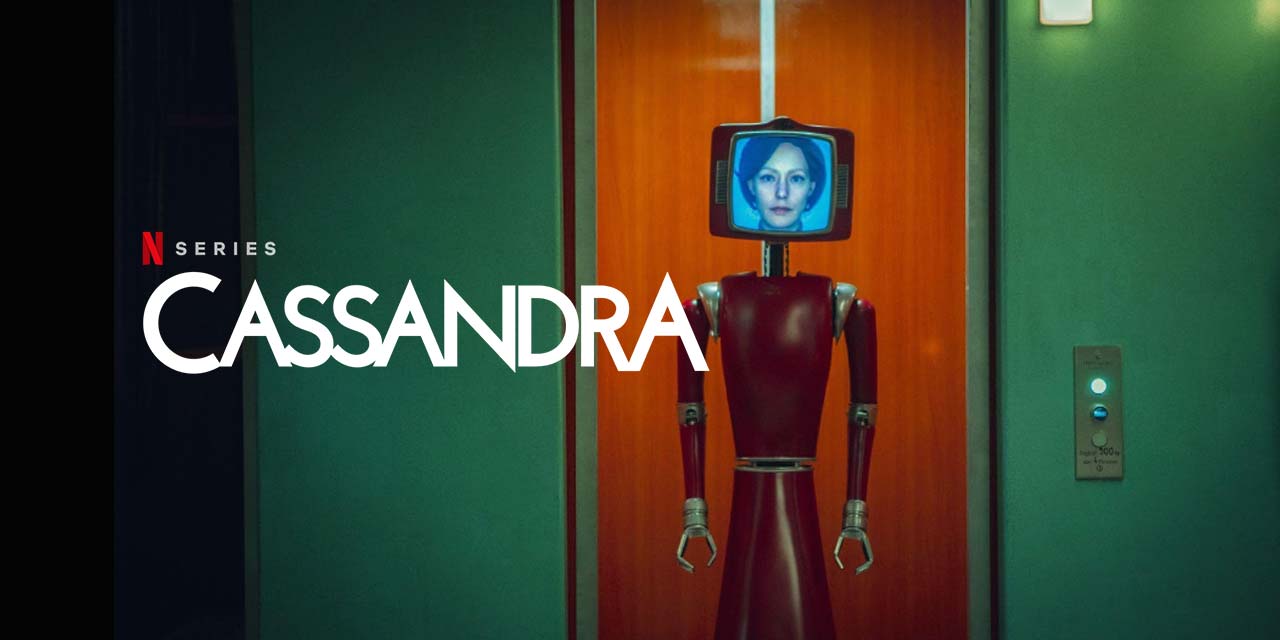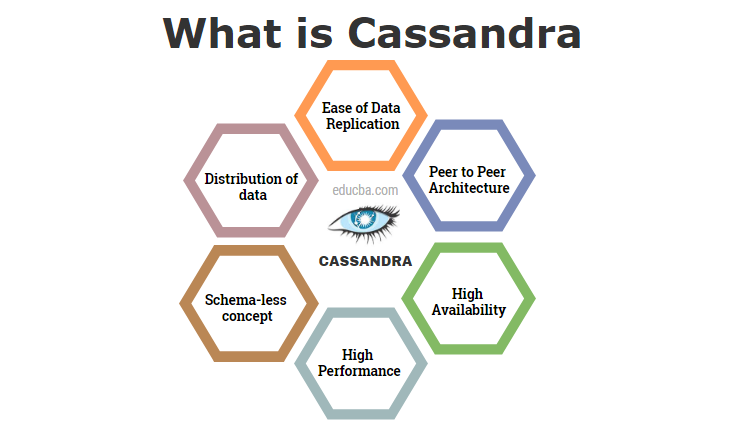Cassandra Jenner: Unraveling The Myth And The Machine
Have you ever stopped to think about names, and how some just seem to echo through time, taking on different meanings in different contexts? That, you know, is the case with "Cassandra." It’s a name that conjures up images from ancient tales, yet it also stands for something very modern and powerful in the digital world. We are going to look at both sides of this interesting story, from old myths to the very core of today's technology, so you can get a better sense of what this name truly represents.
The name Cassandra, in fact, brings to mind a figure from Greek mythology, a woman with a gift that turned into a burden. Her story is one of prophecy and disbelief, a narrative that has shaped our language and thought in surprising ways. It’s a tale that really sticks with you, and its lessons, you know, still feel relevant today.
But then, there's another Cassandra, a completely different kind of entity, a digital one. This Cassandra helps thousands of businesses around the globe manage vast amounts of information, making sure things run smoothly and are always available. It's a testament to how a single name can have such varied and, in a way, compelling applications, pretty much.
Table of Contents
- The Mythical Cassandra: A Voice Unheard
- Apache Cassandra: A Digital Powerhouse
- Common Questions About Cassandra
- Bringing It All Together
The Mythical Cassandra: A Voice Unheard
Who Was Cassandra of Troy?
In the ancient stories of Greece, Cassandra was a princess, a daughter of King Priam and Queen Hecuba, who ruled the city of Troy. She was, in some respects, a figure of great importance within the royal family. Her lineage connected her directly to the very heart of Trojan power and influence, giving her a prominent place in the city's affairs, more or less.
The older versions of her myth, you know, often describe her as a woman of striking appearance and noble birth. She was, as a matter of fact, a sister to Hector and Paris, two very well-known figures in the Trojan War. Her family connections meant she was deeply involved in the events that shaped that famous conflict, apparently.
Some accounts, too it's almost, even refer to her by another name, Alexandra. This dual naming is a little interesting and just adds another layer to her story. It shows how different traditions might have seen her, or how her story evolved over time, giving us, you know, a slightly varied picture of her identity.
Personal Details of Cassandra (Mythological)
| Name | Cassandra (also Alexandra) |
| Parentage | King Priam and Queen Hecuba of Troy |
| Role | Trojan Princess, Prophetess |
| Key Attribute | Gift of prophecy, cursed to be disbelieved |
| Affiliation | Troy (Greek Mythology) |
The Prophecy and the Curse
The myth tells us that the god Apollo gave Cassandra the gift of seeing the future. This was a truly remarkable ability, a way to know what was coming before anyone else. She could, in fact, foresee events with complete clarity, understanding what was going to happen in great detail, basically.
However, the story goes that when Cassandra rejected Apollo, he placed a curse upon her. This curse meant that while she would continue to see the future, no one would ever believe her warnings. It was a cruel twist, a punishment that made her extraordinary gift a source of deep frustration and sorrow, you know.
She tried to warn her people about the Trojan Horse, about the destruction of their city, and about many other dangers. Yet, despite her clear visions, her words fell on deaf ears. Her own family and the citizens of Troy just could not accept what she was saying, no matter how dire her predictions were, apparently.
This inability to convince others, even when speaking the truth, led to the tragic downfall of Troy. Her warnings, though accurate, were dismissed as madness, leading to a truly devastating outcome for her city and her people. It’s a very sad part of her story, that, is that.
The Cassandra Metaphor Today
The story of Cassandra has given us a powerful idea, a metaphor that we still use today. It is often called the "Cassandra syndrome" or the "Cassandra complex." This idea relates to a person who gives valid warnings or raises concerns, but these warnings are simply not believed by others, you know.
You see this idea pop up in many different situations, from environmental warnings to financial predictions. Someone might be pointing out a real danger or a coming problem, but because of some reason, like skepticism or a lack of understanding, their message just does not get through, more or less.
It highlights the challenge of communicating important truths, especially when those truths are unwelcome or go against popular opinion. The "Cassandra metaphor" serves as a reminder of how difficult it can be to get people to listen, even when the stakes are incredibly high, in a way.
Apache Cassandra: A Digital Powerhouse
What is Apache Cassandra?
Shifting gears completely, we come to Apache Cassandra, which is a very different kind of Cassandra. This one is an open-source NoSQL distributed database. It is, you know, a system designed to handle huge amounts of information across many servers, providing high availability without any single point of failure, basically.
Thousands of companies put their trust in Apache Cassandra for its ability to scale and for its constant availability, all without giving up on how well it performs. It is a database built for situations where you need things to be up and running all the time, and to handle growth easily, so it's almost.
One of its main strengths is its horizontal scalability. This means you can add more servers to your system as your needs grow, and the database will just spread the work out among them. This makes it, you know, very adaptable for businesses that expect their data needs to increase over time, truly.
Apache Cassandra is a NoSQL database, which means it stores data in a way that is different from traditional relational databases. This design allows it to handle varied types of data and very large data sets with a lot of efficiency, making it a good choice for modern applications, apparently.
Why Companies Trust Apache Cassandra
Many businesses rely on Apache Cassandra for some very clear reasons. Its distributed nature means that if one part of the system goes down, the rest can keep working. This provides, in some respects, a level of reliability that is absolutely critical for online services and applications that need to be available all the time, you know.
The database is built to handle a lot of data traffic and keep up its speed, even when dealing with millions of operations per second. This performance is a big draw for companies that have a lot of users or process a huge amount of information every moment, pretty much.
It offers, you know, a solution for data storage that can grow with a company's needs without requiring a complete overhaul of the system. This flexibility and the ability to add resources as needed make it a very cost-effective choice for many organizations, especially those with unpredictable growth patterns, that, is that.
Getting Started with Apache Cassandra
If you are thinking about using Apache Cassandra, there are some simple ways to get going. The official documentation for Apache Cassandra is a great place to begin. It explains the main ideas and how the system works at a high level, giving you a good foundation, so.
For those who want to contribute to the documentation, you are welcome to do so by submitting your contribution like any other patch. This open approach means the documentation is always getting better, thanks to people who use the system and know it well, you know.
You can start the Cassandra service, for instance, with a simple command like `sudo service cassandra start`, and stop it with `sudo service cassandra stop`. However, usually, the service will start automatically when your system boots up, making it quite convenient to manage, apparently.
To really get a good grasp of how Cassandra operates in more detail, you should head over to the more in-depth sections of the documentation. There, you will find information that helps you understand its inner workings and how to make the most of its capabilities, just a little.
Connecting to Apache Cassandra
Connecting your applications to Apache Cassandra is made easy through various client drivers. These drivers are organized by programming language, so you can find one that fits your development environment, you know.
Before you pick a driver, it is a good idea to check the Cassandra version and the specific functions that a driver supports. This makes sure that the driver will work well with your particular setup and give you all the features you need, you know, for your project, in a way.
These drivers allow developers to build applications that can talk to the Cassandra database, putting its scalability and availability to work. They are, in fact, the bridge between your code and the powerful data storage system, making it possible to store and retrieve information efficiently, pretty much.
Common Questions About Cassandra
Frequently Asked Questions
What is the Cassandra metaphor?
The Cassandra metaphor describes a situation where a person gives accurate warnings or expresses valid concerns, but these warnings are not believed or are dismissed by others. It comes from the Greek myth of Cassandra, who could see the future but was cursed so that no one would ever trust her prophecies, truly.
Who was Cassandra in Greek mythology?
Cassandra was a princess of Troy, the daughter of King Priam and Queen Hecuba. She received the gift of prophecy from the god Apollo. However, when she refused his advances, he cursed her so that her true predictions would always be disbelieved, leading to the downfall of Troy, you know.
Is Apache Cassandra related to the Greek myth?
No, Apache Cassandra, the open-source NoSQL distributed database, is not directly related to the Greek myth beyond sharing the name. The database was likely named for its ability to predict and handle large data loads, or perhaps just for the sound of the name, but it has no functional or historical link to the mythological figure, in fact.
Bringing It All Together
So, we have looked at the name Cassandra from two very different perspectives: the ancient mythological figure and the modern digital database. One tells a story of human struggle with truth and belief, a truly compelling narrative that still holds lessons for us today. The other, you know, represents a cutting-edge solution for handling the vast amounts of information that shape our digital world.
Both versions of Cassandra, in their own ways, are about knowledge and its impact. The mythical Cassandra possessed knowledge that was ignored, leading to tragedy. Apache Cassandra, on the other hand, is built to manage and provide access to knowledge, supporting countless operations every second. It's a fascinating contrast, really, between a human story and a technological one, all sharing a single name.
If you are curious to learn more about the technical aspects of this database, you can explore the Apache Cassandra official documentation. For more on the historical and cultural impact of names and their origins, you know, like your interest in "cassandra jenner," we invite you to learn more about names and their stories on our site, and perhaps check out our page on historical figures for similar deep dives. It is a big world of information out there, and we hope this look at Cassandra has sparked your interest, pretty much.

Cassandra Netflix Ending Explained: What Is the Fate of the Characters

what is Cassandra? | An Comprehensive Guide to Apache Cassandra

Cassandra, serie de Netflix: final explicado, de qué trata y capítulos